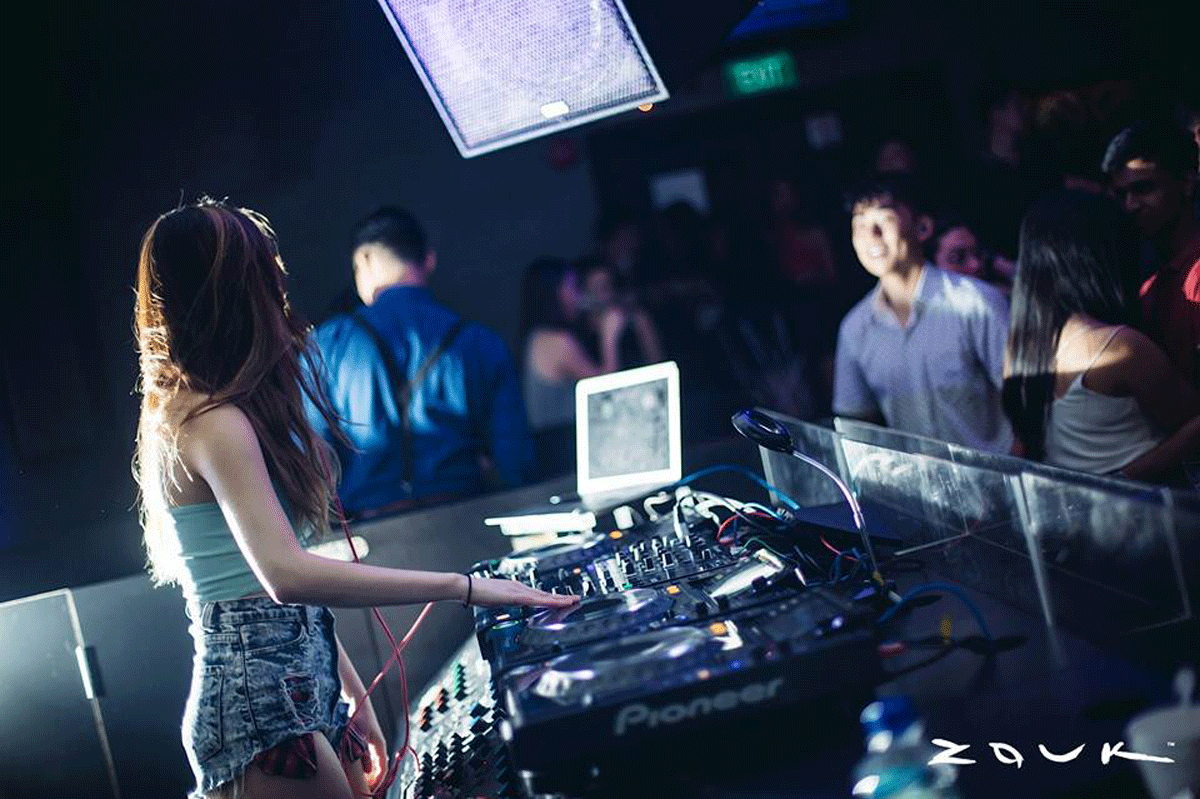I am barely a question into my interview with Amanda Tan from ATTAGIRL!—Singapore’s most prominent female DJ collective—when she informs me that my understanding is misguided.
My original idea, to examine the appeal of the ‘Female Model DJ’, is too narrow, she says.
“What’s the appeal of the Model DJ? That’s not the question we should be asking. Why we are classifying and giving certain women in the DJing world a label is the real issue,” she writes over email.
The label in question, that of the ‘Female Model DJ’, describes the trend of female ‘DJs’ who are heavily marketed and booked based on their looks and social media followings rather than their DJing abilities.
Most of the time, they’re young, with a penchant for dressing provocatively and of some ‘influencer’ status.
This has made them easy targets for much criticism and disdain. Nicole Chen, a DJ-artist, says that such girls are often valued only for their looks rather than their skills, and are only able to press play, use auto sync, and look cute.
“Why is it only women who are subject to this and not good looking men who DJ as well?” asks Amanda.
However, both Amanda’s and Nicole’s concerns with the portrayal and perception of the Female Model DJ don’t exist in a vacuum.
Rather, their words point towards a larger problem within Singapore’s DJ and nightlife industry: that of the objectification and denigration of women in a largely male-dominated industry.
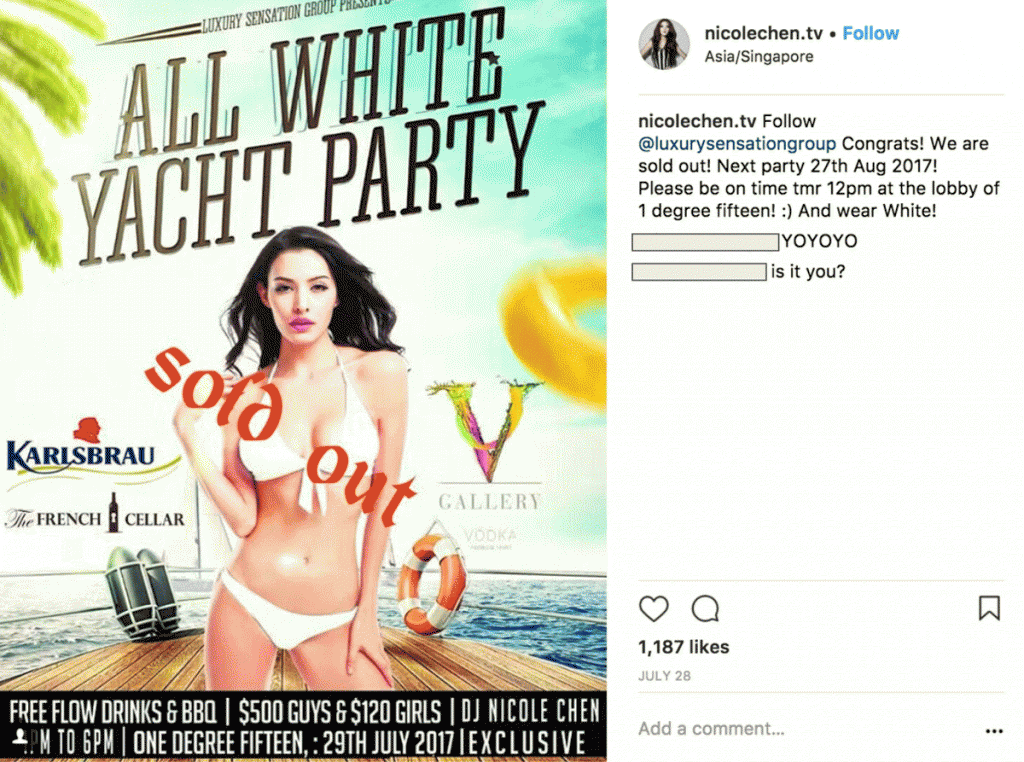
In fact the most common answer I received when inquiring into the appeal of the Female Model DJ was that it is simply good for business.
Angeline Zhang, a DJ at ARIOZE and part of Altra Management, tells me that these DJs are often high in demand for their ability to pack out clubs.
“If you’re a business owner, you’d want to choose someone who looks like a cover model because you’re basically choosing someone to represent your product,” says TINC, a DJ-Producer.
“You can show people that everything is perfect and who doesn’t want that?”
Of course, not all clubs are built the same.
Sabrina Ooi, a former resident DJ at 1-Altitude, Fenix Room and DREAM, tells me over Skype that the more established clubs such as Zouk and Bang Bang know that they don’t have to hinge on a DJ’s reputation or looks to get a crowd.
In comparison, it is usually the newer and less established clubs and promoters who are more profit driven and marketing based, and so continue to rely on the popularity and attractiveness of a female DJ to bring in the big bucks.
Sabrina recounts how she was once asked to play a bar gig and not a club gig because she “wasn’t as hot as the other girls.”
They told her, “You’re more talented, but you’re not going to show your boobs.”
Unfortunately, women have long been openly marketed and objectified for the sake of business and the Female Model DJ is but one instance it. Ladies Nights and Bottle Club Girls are essentially variations of the same thing.
“Why is it always the door bitch and not the door guy? Or female hostesses and not male hosts?” Sabrina adds.
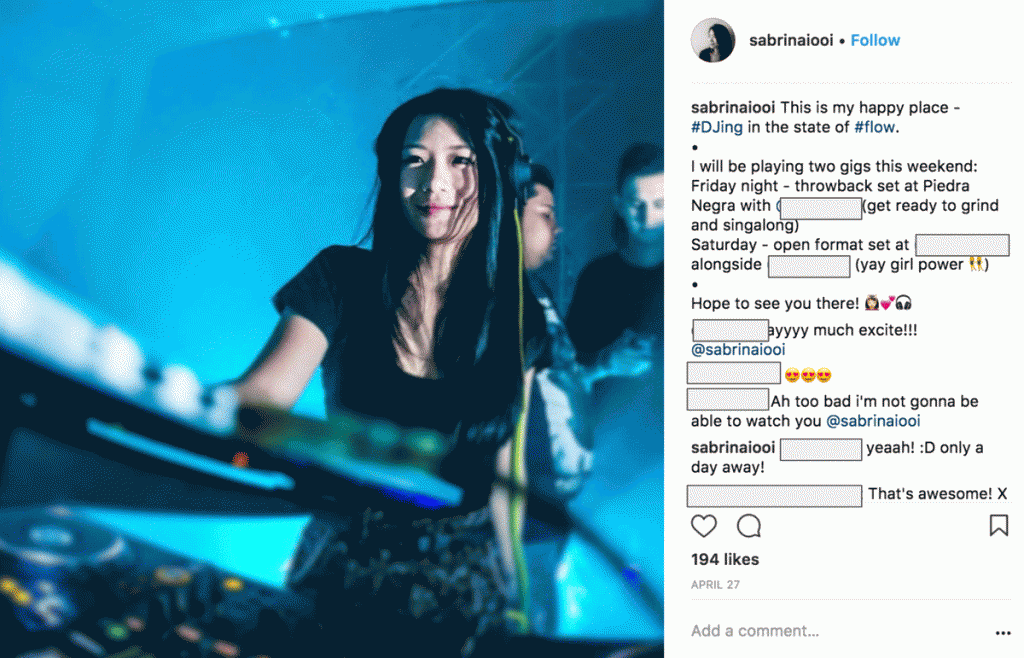
While the Female Model DJ may be taught the technical side of things, whether they are adaptable enough and whether they truly have a passion for their music remains to be seen.
Sabrina suspects that these ‘DJs’ were already dressing (scantily) to begin with, but were then recruited and sold the dream of learning how to DJ—in what they were already wearing—in return for good money.
“It’s an additional revenue stream and they don’t have to do that much actually. If I were like them and offered this opportunity, why not right?”
However, the blame does not fall squarely on the shoulders of these girls and the businesses that hire them. It’s also about the that crowds they play to.
TINC tells me that after DJing for a few years, she became lazy and jaded for a period of time. “I just stopped looking for new music. I’d go to the club every week and spin the same songs,” she confessed.
And she wasn’t the only one. She’s aware of several male DJs who’ve done the same.
When I probe her to explain why, she sighs.
“These guys are just robots,” she says, referring to the audiences she plays for at clubs.
As part of TINC’s job as a DJ to research and introduce the public to new music, she often spots future top 50 songs one or two weeks before they become hits. Yet when she plays them early in clubs, the audience doesn’t get it.
“I’ll introduce new songs, and they’ll just stand there, they refuse to get educated. And then next month the song becomes popular and suddenly everyone is listening to it.”
When it comes to music, it seems like most club-goers are merely interested in what’s on Spotify’s top 10 playlist.
By not being properly attuned to or discerning about quality music, it’s no wonder that DJs who may not be very good at their jobs are still able to get away with what they do.
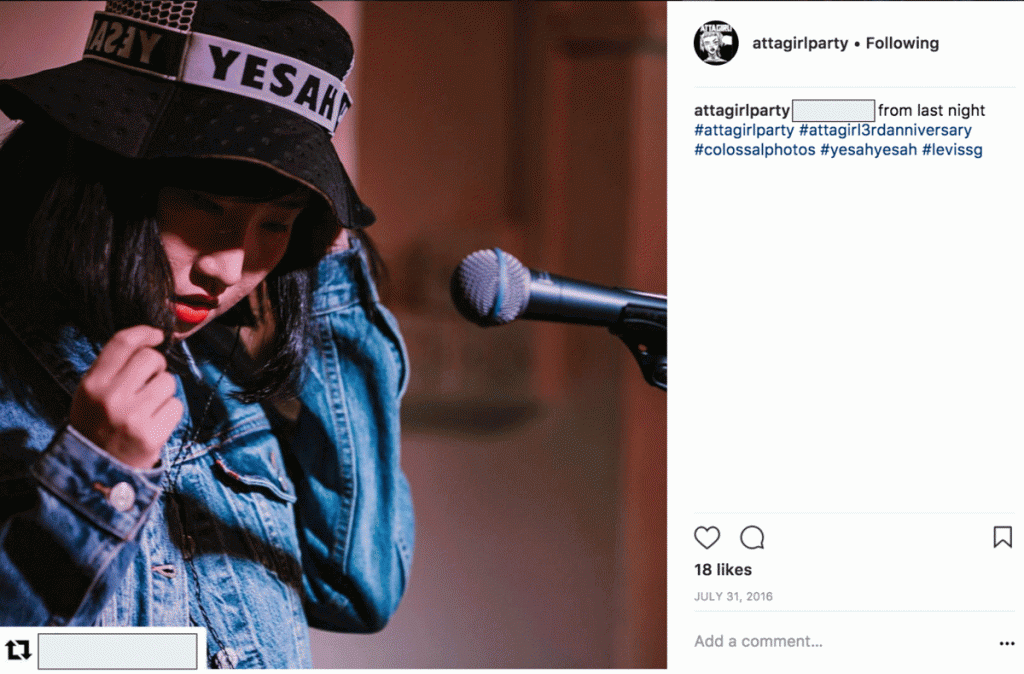
Sabrina shares how some years ago, she was booked to DJ on a cruise to Batam with another female DJ.
Two weeks prior to the event however, she was suddenly asked to post a picture of herself in a bikini to Facebook, promoting a swimwear brand as part of a sponsorship deal her client had signed without her knowledge.
“I said no, I didn’t sign up for this and even if you pay me twice I won’t do it.”
The other girl however, did the post. “I think there’s a culture of fear that you’ll lose your job if you don’t give in to the organiser’s demands,” she tells me.
Later on in our conversation, she opens up about feeling pressured at times to appease her audience.
“When a female DJ is hired to play at a club, the club thinks that oh because the big spenders who come, came for you, female DJ, because you’re so hot and therefore you need to say hi and have a drink with them.”
Even though such demands were never made outright, she often felt obligated to at least stay for a drink.
As for male DJs, Sabrina tells me that as far as she knows, they were hardly faced with similar pressures. In fact, she says, there is a definite difference between how male and female DJs have to manage themselves in the industry.
According to Sabrina, it is sometimes difficult for female DJs in the scene to appear to be dating someone, as if their unavailability would take away from their attractiveness.
While male DJs are sometimes subject to similar scrutiny, the repercussions or stigmas they faced are never as high.
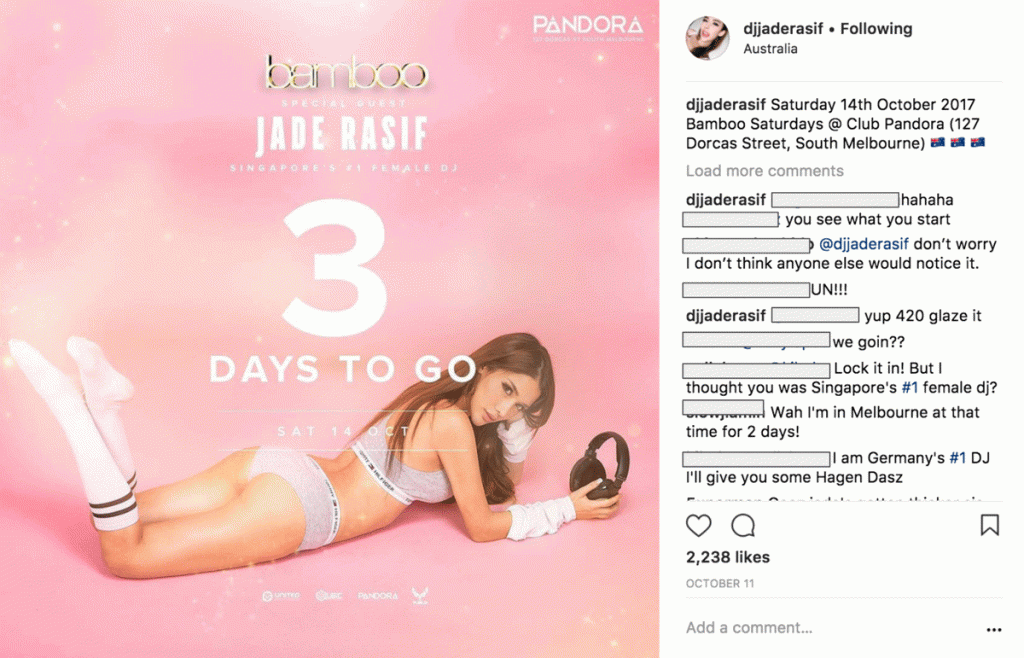
Amongst DJs, women have always been far and few inbetween. In fact, just 7 years ago when TINC first started DJing, she remembers being able to count the number of female DJs around with just one hand.
When the trend of Female Model DJs took off in the early part of the last decade, peaking in 2013 to 2015, she lost track.
But even though the gender gap is gradually closing up, male DJs still readily outnumber female ones—particularly when it comes to success.
“I bet if you ask most clubgoers to name their favourite female DJs, it is unlikely they would be able to name more than a handful if that,” says Nicole Chen.
“There have been some great success stories and breakthrough females DJs with the likes of Krewella and Nervo but it is still very much a male world.”
And with this long-existing gender imbalance and additional flood of dj model-newcomers, comes an issue of respect—or lack thereof.
Jade Rasif, reportedly Singapore’s highest paid DJ, tells me over email that “Women are not taken as seriously, their ability to lead a crowd is questioned and they are expected to conform to industry standards of beauty.”
Her sentiments are echoed by Erica Ng, a former Resident DJ at Fashion TV Shanghai. While male DJs just have to prove their music, female DJs—model or not—have to work extra hard to get accepted and gain credibility.
“People think it’s easy to be a Female DJ but the truth is quite the opposite.”
While being a female in a male dominated industry does allow some DJs to bank on their sex appeal to help secure them gigs and get ahead, according to the experiences of Singapore’s female DJs, this often does more harm than good.
“There are many great women in the industry that have real talent but everywhere you look, the female DJ is noticed mostly for her ‘show’,” says Angeline, which can be frustrating when one works so hard to hone their DJing skills.
This has led to some of them policing their dressing. While DJ TINC believes that there is nothing wrong with wanting to make more of an effort, or to look pretty as a girl, she often dresses down on purpose so as not to be judged.
“I’ll want to wear shorts but then after I think about it, better not, I’ll wear jeans.”
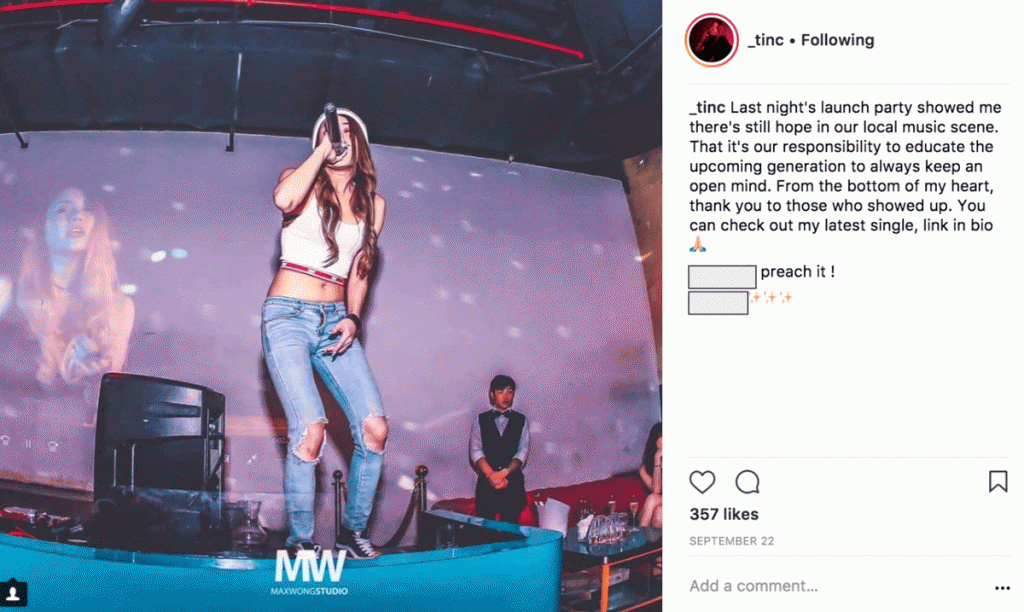
I won’t deny that when I first witnessed the Female Model DJ emerge, I was critical and often wondered how people like them could become DJs in the first place.
Today, it’s clearer that they’re just pawns in a larger game of money-making.
Nevertheless, for those DJs serious about their profession, the fight to be taken seriously in Singapore’s nightlife industry continues.

